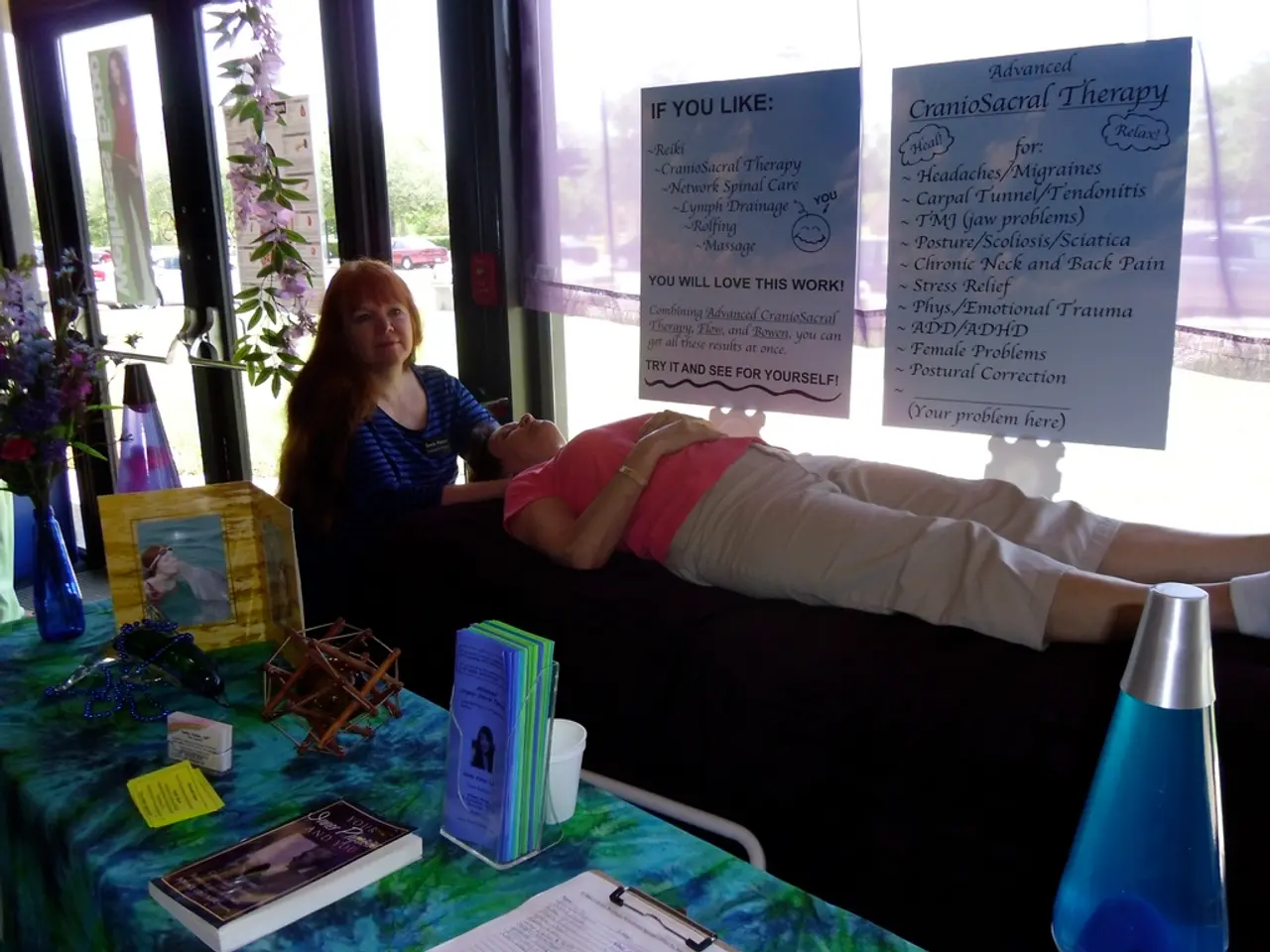Investigators Explore if Psychological Treatments Reduce Symptoms of Psoriasis
Psoriasis, a chronic inflammatory skin disease affecting around 7.5 million people in the United States, may find relief through psychological interventions like Mindfulness-Based Stress Reduction (MBSR) and Living Well programs. These interventions, which help manage stress—a known trigger of psoriasis exacerbations—could potentially decrease both the frequency and severity of flare-ups.
Research suggests that psychological stress stimulates neuroendocrine and immune responses that aggravate inflammation in the skin, leading to psoriasis flare-ups. By managing stress through mindfulness, meditation, yoga, and related techniques, these interventions help interrupt this process by reducing cortisol and inflammatory cytokine release.
MBSR, in particular, enhances patients' awareness of physical and emotional states, enabling early detection of stress or symptom changes that might precede a flare. This proactive management can help control the disease. Living Well programs, which are usually holistic in nature, integrate stress reduction with lifestyle modifications to improve emotional resilience and immune function.
The psychoneuroimmunological aspect of psoriasis involves complex interactions between the nervous system, endocrine system, and immune system. Chronic stress alters neuroimmune signalling, increasing pro-inflammatory mediators like TNF-α and interleukins, which drive psoriasis plaques. Psychological therapies, such as MBSR and Living Well, mitigate this by lowering stress-induced neuroendocrine activation, thus reducing inflammatory responses and improving skin symptoms.
A collaborative study led by the University of Rochester Medical Center will test the effects of these interventions on psoriasis. The study, which has received a $2.5 million grant from the National Center for Complementary and Alternative Medicine, plans to recruit 200 Rochester-area residents with psoriasis to participate.
Participants will take part in one of two interventions: MBSR or Living Well. Researchers will measure and track biological markers of psoriasis in skin lesions and blood of volunteers to determine if increasing psychological well-being results in measurable decreases in inflammation. The study aims to elucidate new ways that the brain can direct immune responses in psoriasis.
If successful, these interventions could provide low-cost, adjunctive psychological treatments for psoriasis patients, helping to decrease psychological distress and potentially ameliorate the skin disease and inflammatory processes. The study's principal investigator, Jan Moynihan, Ph.D., director of the Rochester Center for Mind-Body Research, emphasises that psoriasis has a strong psychoneuroimmunological component.
Psychological or life stress often precedes flare-ups of psoriasis, according to Moynihan. The interventions, if effective, could offer a promising approach to managing this debilitating condition.
- Psychological interventions such as Mindfulness-Based Stress Reduction (MBSR) and Living Well programs, known to manage stress and reduce flare-ups in psoriasis patients, may have potential benefits for health-and-wellness, mental-health, and skin-care.
- The study led by the University of Rochester Medical Center aims to investigate the impact of MBSR and Living Well interventions on psoriasis patients, hypothesizing that increased psychological well-being could lead to measurable decreases in inflammation, thus benefiting nutrition, fitness-and-exercise, and overall health-and-wellness.
- Psoriasis, being a chronic inflammatory skin disease, is influenced by complex interactions between the nervous system, endocrine system, and immune system, making it a suitable candidate for interventions that target mental-health, such as MBSR and Living Well programs.
- In the quest for effective treatment options for psoriasis, psychological interventions like MBSR and Living Well programs, which can help manage stress and improve mental-health, may offer a cost-effective and promising approach to address both the psychological and physical aspects of this condition.




